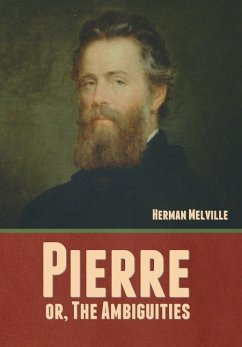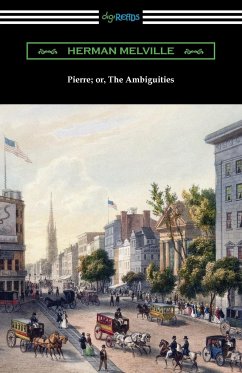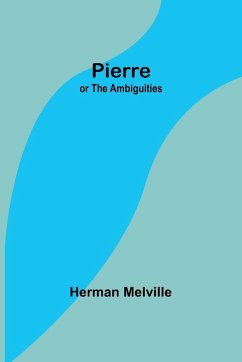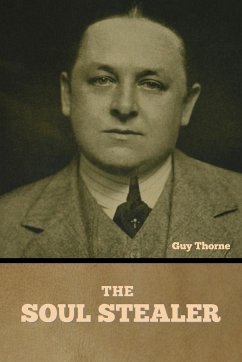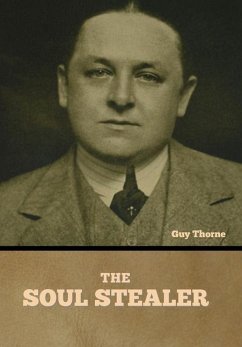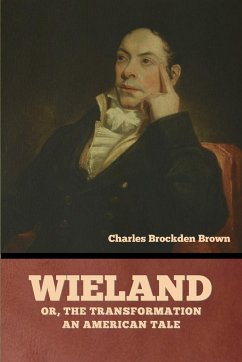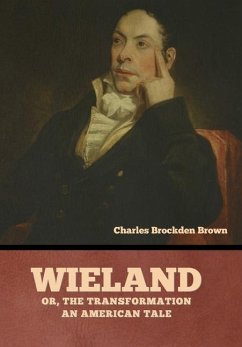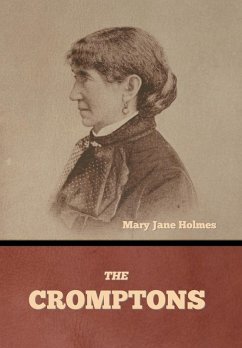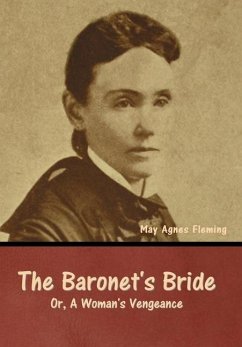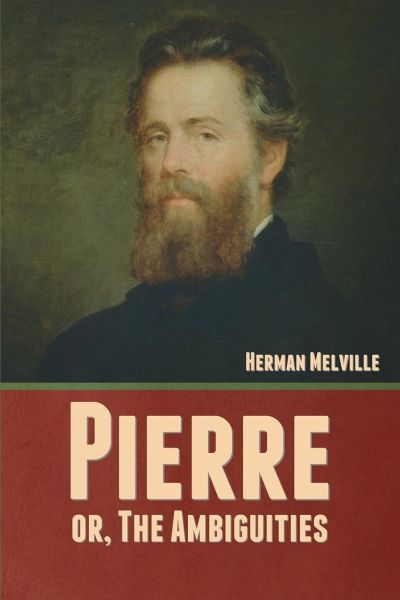
Pierre; or, The Ambiguities
Versandkostenfrei!
Versandfertig in 1-2 Wochen
20,99 €
inkl. MwSt.
Weitere Ausgaben:

PAYBACK Punkte
10 °P sammeln!
Pierre; or, The Ambiguities is the seventh book by American writer Herman Melville, first published in New York in 1852. The novel, which uses many conventions of Gothic fiction, develops the psychological, sexual, and family tensions between Pierre Glendinning; his widowed mother; Glendinning Stanley, his cousin; Lucy Tartan, his fiancée; and Isabel Banford, who is revealed to be his half-sister. According to scholar Henry A. Murray, in writing Pierre Melville "purposed to write his spiritual autobiography in the form of a novel" rather than to experiment and incidentally work some personal ...
Pierre; or, The Ambiguities is the seventh book by American writer Herman Melville, first published in New York in 1852. The novel, which uses many conventions of Gothic fiction, develops the psychological, sexual, and family tensions between Pierre Glendinning; his widowed mother; Glendinning Stanley, his cousin; Lucy Tartan, his fiancée; and Isabel Banford, who is revealed to be his half-sister. According to scholar Henry A. Murray, in writing Pierre Melville "purposed to write his spiritual autobiography in the form of a novel" rather than to experiment and incidentally work some personal experience into the novel. Published after the lukewarm reaction to Moby-Dick, Pierre was a critical and financial disaster. Reviewers universally condemned its morals and its style. More recent critics have shown greater sympathy toward the book, seeing it as a "psychological novel - a study of the moods, thought processes, and perceptions of his hero". The characteristics of the style, described by Murray as a "miscellany of grammatical eccentricities, convoluted sentences, neologisms, and verbal fetishisms", are by themselves enough to set Pierre off as "a curiosity of literature." The chapter arrangement, by contrast, with each chapter called "Book" and sub-divided into short numbered sections, seems to aim for a clear structure that for critic Warner Berthoff helps "to salvage some degree of organization and pace from the chaos of Melville's purposes." Walter Leyden Brown directed a theatrical adaptation of the book at La MaMa Experimental Theatre Club in Manhattan's East Village in 1974. The book was the source for the 1999 French film Pola X (Pierre ou les ambiguïtés) directed by Leos Carax. The Denver Center Theatre Company developed and produced the world premiere of Pierre in 2002, a stage play written by Jeffrey Hatcher, and directed by Bruce K. Sevy. The cast included Christopher Kelly as Pierre Glendinning and Morgan Hallett as Isabel Banford. American composer Richard Beaudoin wrote an opera based on the book; Act I was staged in August 2007 at London's Arcola Theatre. (wikipedia.org)





